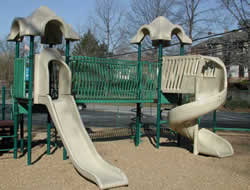|
The Issue
Think for a bit about your experiences with information, with
television, newspapers and magazines, classrooms, books, and
libraries. Now think about your experiences with the web.
In what ways is the web similar to or different from these
other things in terms of what you can find in the way
of information, how you find it, and how you work with it
when you have found it?

Theory
The Web provides, to anyone having access to it, a wealth
of information, ideas, and perspectives orders of magnitude
greater than was previously available to even the richest
and most powerful human beings.
The disorder of the Web is one of its greatest virtues.
As a fundamentally decentralized system of information exchange,
it makes available, to a much greater degree than any prior
human institution, the widest possible array of information/ideas/perspectives
in a diversity of forms which, for the first time, approximates
the diversity of human users.
(More Theory)
Examples, Exercises,
and Additional Resources on Serendip
Further Questions
How does one make the web better?
How does one other make media and classrooms/libraries better?
How does one best make discriminative use of various information
sources including the web?
|